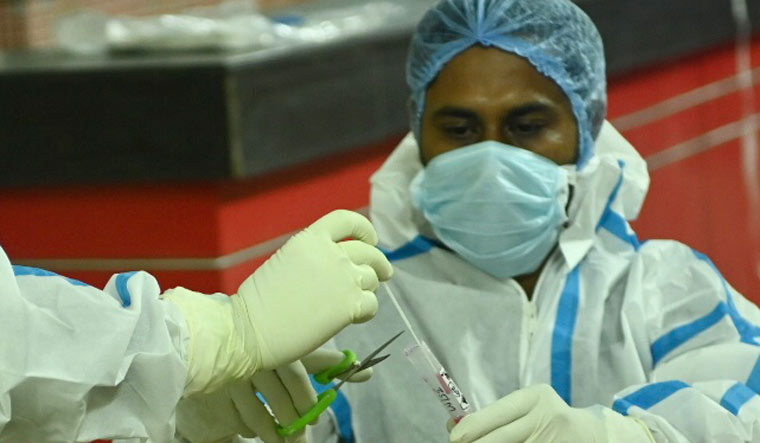Genomic sequencing studies by a consortium of 10 national laboratories have found that 771 of the samples tested showed variants of concern (VOC) of the Sars-Cov-2 virus in India. Most of the samples—736—were positive for, what is known in common parlance, as the UK strain (B.1.1.7). Thirty four samples were of the South African (B.1.351) lineage, while one sample showed up as positive for the Brazilian (P.1) lineage.
The spread of these variants is rather large, across 18 states of India. The studies have also found a new, double mutant in India. The consortium had tested 10,787 positive samples.
In addition, there are worrisome results from the genome sequencing and analysis of samples from arriving international travellers, contacts of those positive for VOC and community samples. In Maharashtra, the analysis showed that the fraction of samples with the E484Q and L452R has increased, and were found in 15 to 20 per cent of the samples. These mutations do not match any previously catalogued VOCs, though they require the same public health and epidemiological responses that have been established.
The mutations confer "immune escape and increased infectivity", says the report. This means that these mutants are not easily suppressed by the immune system of the body and are more infective. The report said that while these variants have been categorised as VOCs, they require the same epidemiological and public health response of increased testing, comprehensive tracking of close contacts, prompt isolation of positive cases and contacts as well as the same treatment that has been approved as the National Treatment Protocol.
In Kerala, of the 2,032 samples from across the 14 districts that were sequenced, 123 samples from 11 districts were positive for the N440K variant, which, again, is associated with immune escape. This variant was earlier also found in Andhra Pradesh and Telangana, as well as 16 other countries, including the UK, Denmark, Singapore, Japan and Australia. "As of now, these can at best be said to be variants under investigation," the statement reads.
The report leaves a lot of questions unanswered. For instance, will the existing vaccines be effective against these new variants, too?
Also, the discoveries have not shed light on the second wave of infections that the country is going through. "These mutations and variants have not been detected in numbers sufficient to either establish or have a direct relationship or explain the rapid increase of the spread of the disease in some states," says the report.
For the present, therefore, it is clear. That the troika of mask, sanitiser and social distancing remain the most effective line of defence against the infection.





